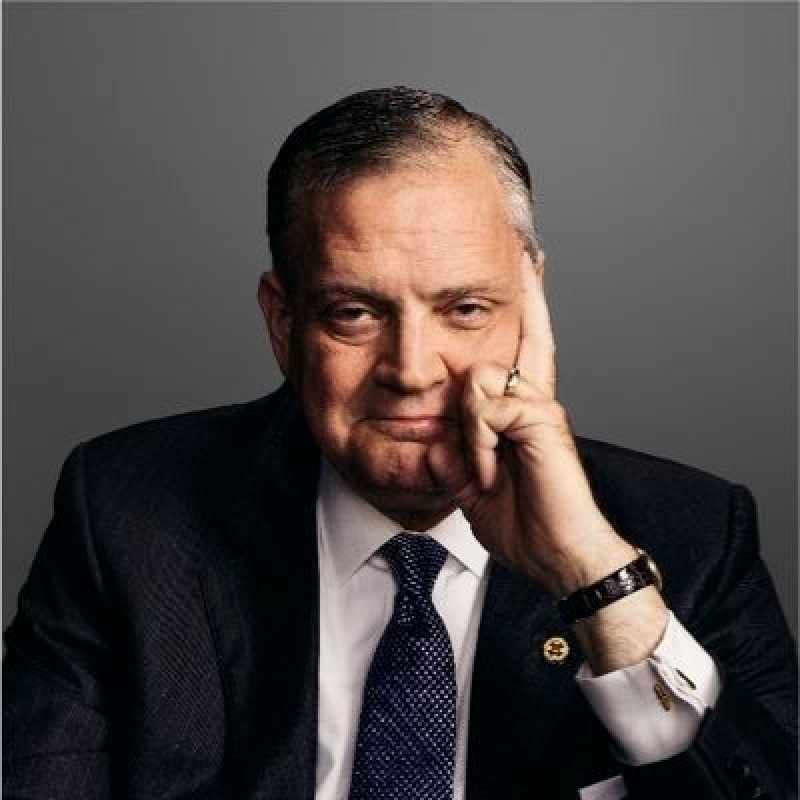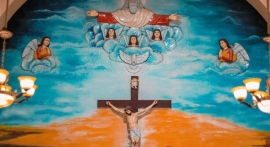
By excluding a pro-abortion politician from holy communion, the Catholic bishops have shown that some of the most important problems will have to be dealt with by all faiths in future, a prominent theologian said.
U.S. bishops have been debating for months whether or not pro-abortion politicians should be excluded from receiving Holy Communion at church. In the first part of The Briefing podcast on Nov. 19, Albert Mohler, president of the Southern Baptist Theological Seminary, addressed the subject.
"By definition, it's of interest to Catholics but it should be of interest to all of us because it raises some of the biggest issues that are going to be confronted by every single religious institution, period. Or at least all those religious institutions that bear any sense of continuation of the Christian moral tradition, not only on the issue of abortion, but sexuality and gender, marriage issues as well," he said.
Mohler noted a report from the bishops' conference in Baltimore where a statement was unanimously adopted (222-8) by the bishops. When the statement was adopted by the United States Conference of Catholic Bishops, "applause" was heard, Ian Lovett and Francis X. Rocca wrote for The Wall Street Journal.
"The vote was the culmination of a debate that has taken most of the year and exposed deep ideological divisions in the church, particularly between U.S. bishops and Rome," the correspondents added.
"What would be that deep ideological division? It would be between what appears to be a majority of the Catholic bishops in the United States and the Vatican, most importantly, Pope Francis himself," observed Mohler.
Following that, Mohler noted that Pope Francis has advised Catholic bishops in the United States to exercise extreme caution when applying Catholic teaching and the Catholic theological understanding of the Eucharist to Catholic politicians such as Vice President Joe Biden and House Speaker Nancy Pelosi.
The following are the Pope's exact remarks, as reported by Vatican News: "But the problem is not theological, it is pastoral, how we bishops manage this principle pastorally. And if we look at the history of the Church, we will see that every time the bishops have not dealt with a problem as pastors, they have taken sides on a political front."
During the interview, Pope Francis reaffirmed the Church's anti-abortion position, but he was lenient in accepting Catholic politicians to receive communion since it is "not a prize for the perfect," but rather "a gift, a present, it is the presence of Jesus in the Church and in the community."
With regard to the Pope's comments, Mohler believes that it underscored his concern about sins, and how they should be related with admission to communion. This has been at the heart of an ongoing debate between President Biden and Speaker Pelosi. However, he said that those two renowned Catholic politicians aren't the only ones to be concerned of. He noted that the number of liberal politicians who are firmly pro-abortion is on the rise in the United States, and that this is a concern for many others.
He went on to explain that in the past, when it was politically advantageous for a Catholic politician, they would give lip respect to the church's teachings but then turn the tables when it didn't.
"But the big issue here is church discipline," Mohler clarified. "And this is where evangelical Christians, individually but most importantly, evangelical Christian congregations, denominations and institutions as well, but congregations centrally, we need to understand that we bear a responsibility to defend the unborn."
"We also bear a responsibility to exercise biblical church discipline," he added. "Biblical church discipline means calling to account Christians who are involved in sin, in particular, in the kind of public sin that you see demonstrated amongst politicians, or for that matter, others who would support the abortion rights cause seek to extend abortion across the country and defend abortion rights."
"We need to understand that this too should be a matter of church discipline for evangelical congregations and our churches. Now, you say, "The defense of human life, of unborn human life, is not in our doctrinal statement."
























